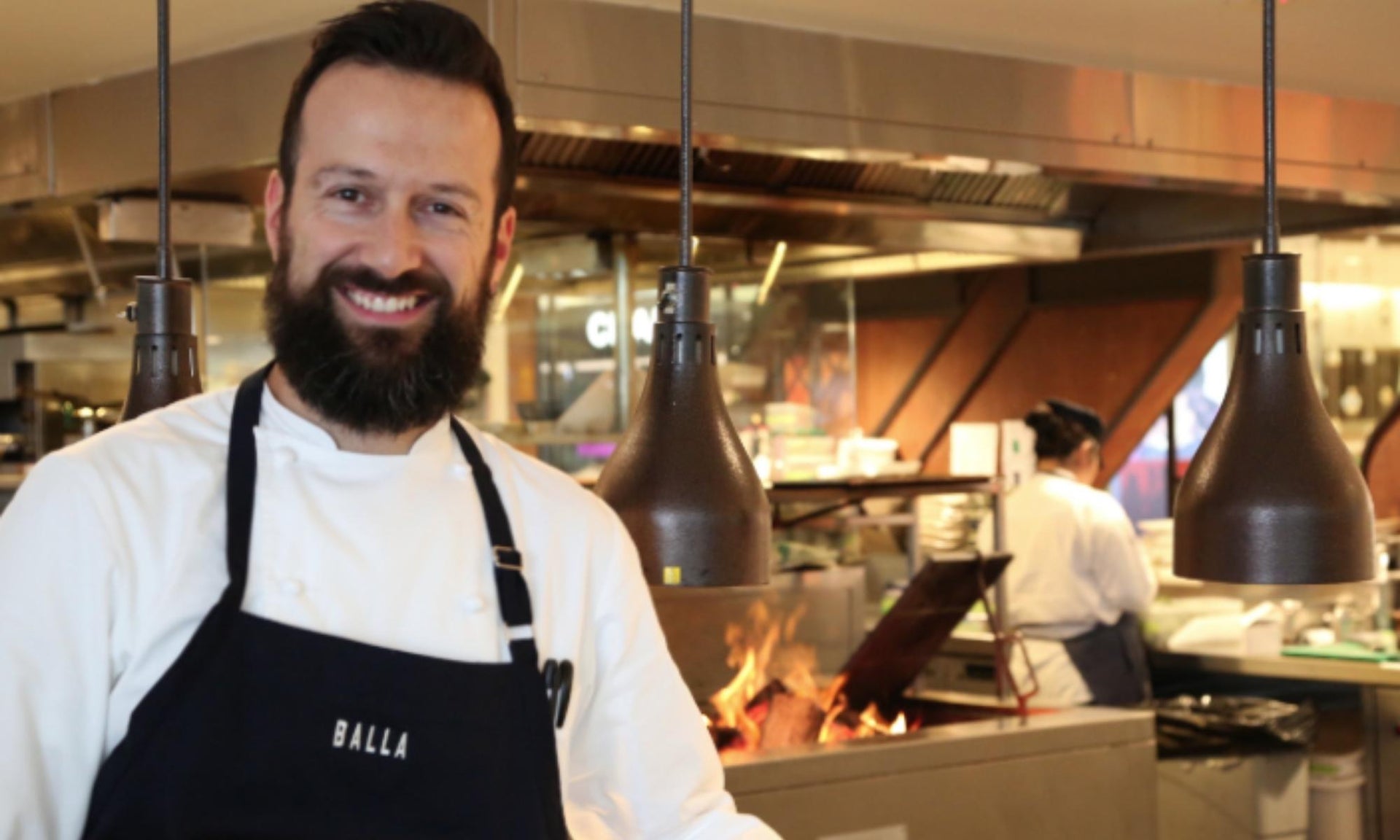Gabriele Taddeucci - The Coeliac Chef

When you first learn you have coeliac disease or gluten intolerance, your daily life get's turned on it's head.
When you're a celebrated chef with a traditional Italian heritage of preparing gluten-dominant dishes of delicious pasta's, pizza's and flakey pastries, it's akin to a life-altering crisis.
Born in the small village of Barga, in the heart of Tuscany, Gabriele Taddeucci grew up with a passion for food.
Studying in Italy, and honing his craft in traditional Italian cookery for over a decade before being diagnosed with Coeliac disease at the age of 27, Gabriele's life was about to take a dramatic turn in the way he viewed food.
We take a glimpse into the life-changing journey of this talented executive, fine-dining chef of Star Casino in Sydney.
Q&A
When did you first move to Australia Gabriele?
The first time I moved to Australia was 2003 and I remained for a couple of years. Then I decided to go back to Italy thinking that I was done with my experience down under. But in 2008 I received a phone call from my old Head Chef who offered me a great job and the opportunity to come back. I didn’t hesitate, and I've lived here permanently since then.
When and how did you first learn you had coeliac disease?
I was diagnosed with coeliac disease in my late twenties and during that time I could barely eat any type of food.
The gluten had destroyed my stomach completely and I lived for a long time with nausea, strong headaches, and bloating.
It took me years to recover from it. Today, like all coeliacs.. I know that I will never be able to eat gluten again.
The experience and symptoms can be different for each person whether they have un-diagnosed coeliac disease or are gluten intolerant. In any case it’s always best avoiding any food containing gluten so as not to aggravate the stomach condition.
How did your cooking style change?
My style of cooking changed dramatically, but most importantly it changed my perception around any person having dietary requirements.
Being an Italian chef, cooking mostly Italian food here in Australia and thinking of pursuing my career by taking gluten off my menus was pretty much unheard of (we are talking nearly 15 years ago).
I even thought about giving up with my career to start something new. But I didn't want to give up 10 years spent in the kitchen just because I had a limitation.
I started to realise that my limitation wasn’t that different from many others, therefore I should come up with a way to overcome it.
So, I started to study gluten free flours, their compositions and how I could bind them together in order to create GF preparations which could also taste good.
It wasn’t an easy journey, a lot of frustration went with it, but slowly slowly I could see good results. My menus started to include GF dishes and more and more my guests started to appreciate my food.
Today I can convert pretty much any kind of food into GF. My study is not over, I love to keep pushing myself and learn how to do new things.
How do you prepare / taste food with gluten in a commercial kitchen environment?
I have no issue in preparing it, I still do it because that’s how I started to cook. To me it’s like riding a bicycle, once you learn how to do it you don’t forget.I can easily cook and serve a plate of normal pasta without tasting it.
Now I think the most important aspect of the Chef’s job is to help everyone develop a sense of awareness toward any kind of food, but particularly when there is an allergy or intolerance.
How do you manage gluten contamination in a commercial kitchen?
So far I’ve been fortunate enough to work in very large spaces where I could assign a small area just for GF preparations by isolating it from the rest of the kitchen.
I understand that this is not always possible, so I recommend washing and sanitizing the area very carefully where you want to prep something GF.
Make sure all your utensils have been thoroughly washed, and store your prep in individual cryovac bags so the food can remain protected.
However, it’s always important to talk to your guests.
Understand the level of intolerance and let them know that your prep has been done in an area where you also handle food containing gluten, particularly if you don’t have an allocated separate area.
Should gluten free dishes cost more?
Not at all!! I’ve never charged an extra cent for my GF food and nobody should do it. It makes people feel unwelcome and I don’t think it shows respect.
It’s about the Chef’s knowledge and effort in searching the best product at the best price (like any other ingredient), and skill in preparing it.
I understand that in the market you can find plain wheat flour for probably less than a dollar/kg while some rice flour is around $3 per kilo.
But we are talking about ultra-refined wheat flour, treated with bleach that no one should use.
If we take instead some med-high quality durum wheat flour, you would be paying the same $ amount as the rice flour if not more per kilo.
To give an example, a portion of fresh pasta might contain about 50g flour. Is $1 or $2 per kilo going to really make your final dish that much more expensive? Not really, we are talking about cents per portion, so it's unfair to charge more.
How does Australia compare in GF awareness to the rest of the world in food service?
Well, I think Australia is doing well when it comes down to our food offer in general.
We are lucky enough to share the country with many ethnicities, which translates in a wide range of different types of food.
But if we are talking about products that normally would contain gluten (such as bread, pasta, pizza, pastries), I think we are not doing so well.
A lot of GF products that you find in the market are manufactured overseas. We need more local companies to invest in these products, as with Europe or the US.
What are your favourite flours for baking or cooking gluten free?
I use different flours for my preparations.
When I bake my bread I usually use cornflour and brown rice. For sweets I use rice, almond and potato starch. While for pasta I mostly use buckwheat.
What naturally GF ingredients do you think deserve more attention here in Australia
I think in terms of GF ingredients we can find pretty much everything. What I think people should know more about, it’s how to use them to produce good GF preparations. The attention should be focused on the usage of these ingredients.
What is your top tip for experimenting with gluten free recipes
Don’t expect to swap the wheat flour with any other random flour non-containing gluten. Sharpen your skills first starting with sweet recipes like biscuits or sponge, learn how these flours react and then try to raise the bar every other time you want to do something.
You must learn any kind of cooking in stages, you can’t be learning everything in one day.
Have you got a great Gluten Free recipe you can share?
Yes, I'm sharing one my favourite family recipes.. sweet rice fritters.
This recipe reminds me of when I was a child, eating these fritters made by my grandma and then by my mum.
We used to eat them in winter to celebrate any special occasion.
It’s a very tasty recipe that's easy to replicate
Buon appetito!
Get the RECIPE - Gabriele's Sweet Rice Fritters
Follow Gabriele's adventures on Instagram at #thetuscanboy

